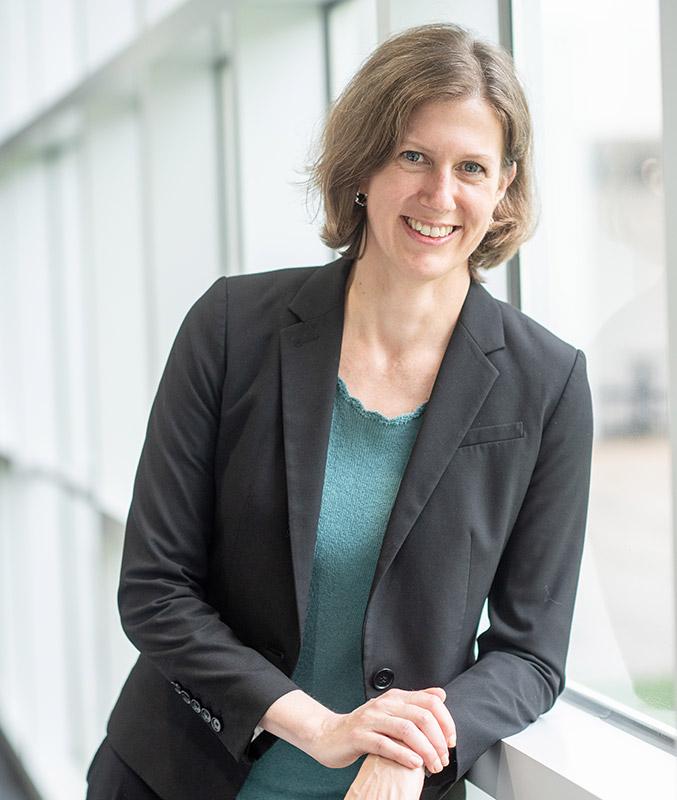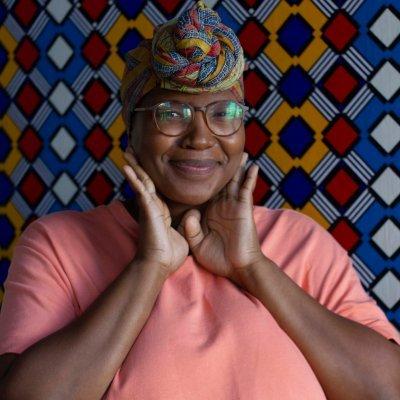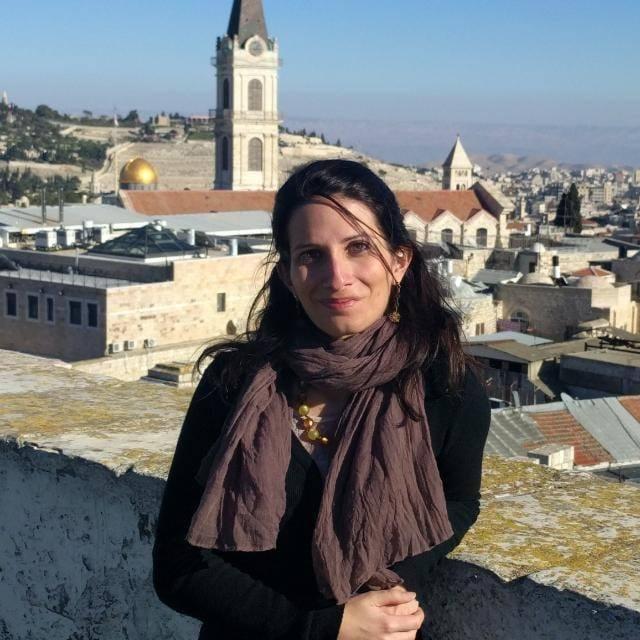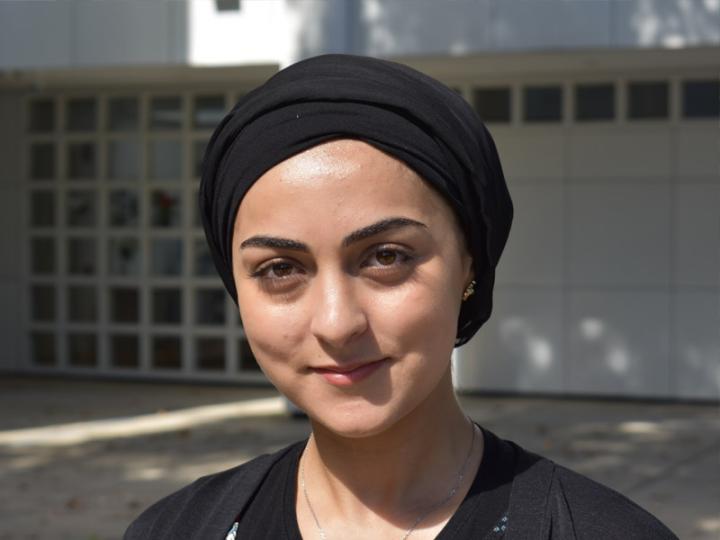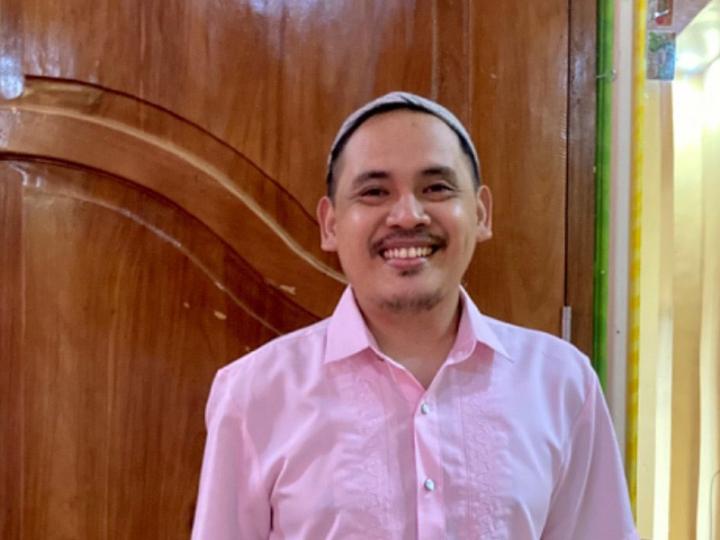Master of Arts in International Peacebuilding
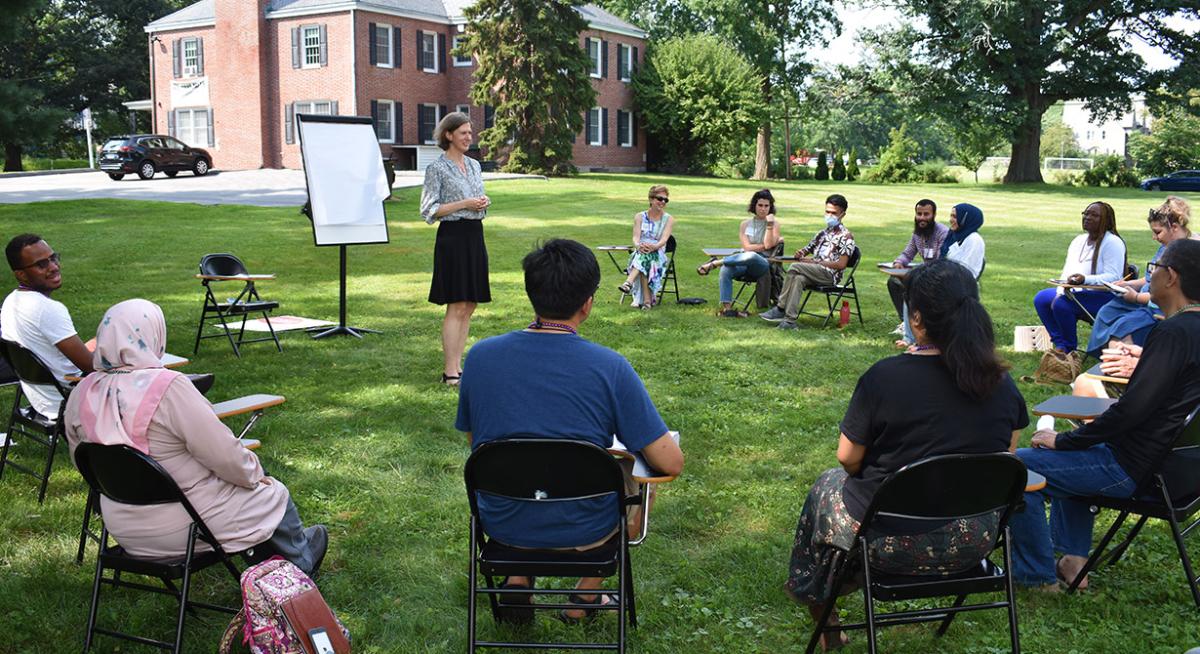
From exploring constructive conflict intervention to examining passages in religious texts that have led to current and historic incidences of violence, our Master of Arts in International Peacebuilding program deeply engages students in a skills-focused application of interfaith learning that changes behavior and drives lasting change. Scholarships may be granted to eligible MAP students to help cover the cost of tuition and housing and provide a small living stipend.
You will graduate with the confidence to lead grassroots community peace and reconciliation initiatives. You will be part of an international student cohort focused on building the knowledge and skills to address local conflicts in your home communities. You will hone your interreligious literacy and conflict transformation skills through case studies, role-plays of real-world examples, public speaking opportunities, service in social justice and religious organizations, and completing a capstone project.
Program Structure
The Master of Arts in International Peacebuilding is a one-year, residential, 36-credit, master’s degree program where students develop interreligious literacy and acquire constructive conflict intervention skills through a combination of service-learning, traditional courses, experiential courses, and project-based learning. Students live in interfaith housing on campus.
-
- Introduction to Interreligious Studies
- Introduction to Peacebuilding
- Constructive Conflict Intervention
- Healing Trauma from the Inside Out: Using Reflective Practice to Support Self, Community, Systemic, and Global Healing
- Field Education (I & II)
- Co-Curricular Learning Community
- Peacebuilding Skills: Dialogue, Trauma & Restorative Justice
- Identity and Otherness in Religious Communities
- Two elective courses from:
Capstone:
- Project Proposal/Personal Action Proposal OR Project Report/Personal Action Report
-
Mission: To foster the creativity and agency of emerging peacebuilders. To equip them to use religion as a catalyst for peacebuilding and to pursue peaceful change in religious and interreligious settings.
Through completing MAP, you will become capable of:
- Building the internal resources necessary to engage conflict constructively.
- Investigate your own inner world, including your motivations for participating in peacebuilding work, the mindsets you bring to conflict, your loyalties and biases, your reactions to complexity and ambiguity, and important components of your identity.
- Assess how your faith tradition and culture influence your motivations, mindsets, biases, and reactions.
- Apply a holistic understanding of trauma to your own life story, and trauma-informed intervention to your approach to conflict in your community.
- Practicing and modeling skills which build empathic relationships with the goal of nurturing communities that foster inclusivity and compassion.
- Demonstrate the skill of active listening.
- Demonstrate the skill of eliciting and sharing stories.
- Demonstrate multi-partiality by holding safe-enough space for diverse perspectives.
- Explain and apply theories of social change.
- Analyze case studies and real-world situations through the lenses of web-building, contact theory, and complex contagion.
- Map the Theory of Change of projects, organizations, and movements.
- Applying conflict transformation tools and processes.
- Apply conflict analysis tools to case studies and real-world problems.
- Use Stakeholder Analysis as a tool for planning projects or programs.
- Practicing peacebuilding processes. Developing the capacity to choose among them, or to adapt them to help groups to engage across significant differences
- Lead a multi-stage mediation role-playing exercise.
- Actively participate in a Reflective Structured Dialogue and explain the method and its uses.
- Actively participate in a Restorative circle or conference in a role-playing exercise.
- Gaining fluency in Interreligious Studies:
- Explain and use important theoretical approaches to religious studies.
- Provide clear and empathic restatements of the beliefs and perspectives of several religious traditions.
- Illustrate how religions help people promote peace or harm, both within and between communities.
- Demonstrating basic knowledge of Christianity, Judaism, and Islam.
- Articulate the basic teachings, practices, and emphases of the Muslim, Christian, and Jewish faiths, while recognizing important differences within each tradition.
- Analyze and explain how religious traditions (Judaism, Islam, or Christianity) have been used to facilitate societal change.
- Practicing interreligious community-building.
- Accept and value the diverse ways that people pray, eat, prepare food, dress, and relate to each other within the program community.
- Receive and honor what it means to be Christian, Jewish, or Muslim through the eyes and experience of your religious neighbor.
- Building the internal resources necessary to engage conflict constructively.
-
Deadlines: Applications for non-U.S. citizens are due by December 15th. Applications for U.S. citizens are rolling.
Because this program is very selective, we allow applicants to apply two years in a row. If you are not selected for an admissions interview in either cycle, we ask that you wait five years before you apply again.
- Prior Education: Submit official transcripts from all undergraduate and graduate institutions attended to the Admission's Office. Transcripts must be in English or accompanied by a certified English translation. A bachelor’s degree (or its educational equivalent) at a high level of achievement from an accredited institution is a prerequisite for admissions.
NOTE: Admitted students with non-U.S. transcripts will be required to submit evaluated transcripts completed by a credential evaluation service. You do not need to have your transcript evaluated unless you have been admitted. Your admission will be provisional until an evaluated transcript is received and reviewed. We must receive your evaluated transcripts within three weeks of the date on your admission letter. We recommend The Evaluation Company (formerly SpanTran) as the most economical option for transcript evaluation. HIU will be notified directly when the transcript evaluations are completed.
- Statement of Purpose: The Statement of Purpose should be 750-1200 words (three to five pages typed, double-spaced) and reflect on:
- your goals in seeking theological education and the experiences or values that have led you to do so;
- the reasons you have chosen Hartford International University, in particular;
- your educational/ vocational goals;
- the life experiences that have most significantly shaped you in terms of your interest in interfaith engagement and/or peacebuilding;
- any particular issues in your community about which you are passionate.
- Three letters of recommendation: (one academic, one related to peacebuilding or interfaith work, one character)
- Interview: Applicants who meet the minimum educational requirements and whose Statements of Purpose align with the program’s mission and goals will be contacted for an interview by the program director.
- International Applicant Passport: International applicants must also provide a copy of their passport.
- Proof of English Language Proficiency: Students who are not native English speakers or who have not had English as a primary language of instruction in their academic studies, are required to submit scores of the Test of English as a Foreign Language (TOEFL), the International English Language Testing System (IELTS), or the Duolingo English Test (DET) examination and achieve a minimum score of 80 on the internet based or 550 on the paper based TOEFL; 6.5 on the IELTS; or 110 on the DET.
- Prior Education: Submit official transcripts from all undergraduate and graduate institutions attended to the Admission's Office. Transcripts must be in English or accompanied by a certified English translation. A bachelor’s degree (or its educational equivalent) at a high level of achievement from an accredited institution is a prerequisite for admissions.
-
How do I apply?
Thank you for your interest in the MA in International Peacebuilding. You can start your application by clicking on one of the links below
Application for Candidates from the US
Application for Candidates from Other Countries
Please let us know if you have any questions.
What are the deadlines?Applications for non-U.S. citizens are due by December 15th. Applications for U.S. citizens are rolling.
Can I meet with someone to discuss the program?We hold occasional online information sessions about the MAP program. If you would like to be notified about the next information session please send a message to admissions@hartfordinternational.edu
Do I need an interview?Short-listed candidates will be contacted to set up an interview via Zoom or WhatsApp.
When will I be notified about your decision?We are planning to make our decisions at the end of March. You will be notified shortly thereafter.
If I am not admitted this year, can I apply next year?Because this program is very selective, we allow applicants to apply two years in a row. If you are not selected for an admissions interview in either cycle, we ask that you wait five years before you apply again.
Can it be done online?MAP is an in-person, residential, full time master’s degree, so it is not possible to do the program online. In order to spend time on campus, Hartford International University requires students, faculty and staff to either be fully vaccinated or to test weekly for Covid.
Can I be a part-time student in the MAP program?No. MAP is a cohort-model, meaning the student group begins and ends together. In this model, students learn a great deal from each other, and support each other through the rigorous process of obtaining an MA in one year.
Can I work while I do the MAP program?In order to get an MA in one year, the course load is heavy. Students will only have time to work a very small number of hours (less than 10) per week while completing the coursework. International students in the US on an F1 visa are only allowed to work for HIU. There are a small number of on-campus jobs, assisting with the library, the front desk, and facilities maintenance.
What jobs do MAP graduates obtain? Do you help me find a job after I complete my degree?As this is a new program we don’t have data yet on the types of jobs graduates accept. As a small institution, we don’t have a career services department. Our former peacebuilding program was a graduate certificate. Most of those alumni ended up working for non-profits, in congregations of many types, or in theological education themselves.
Upon completion of the new MAP degree you would have strong skills in conflict analysis, alternative dispute resolution, dialogue facilitation, and project planning, paired with a deep understanding of Christianity, Islam, Judaism, and the relationships among these three faiths. This portfolio of skills and knowledge would make you very attractive to employers who operate in religiously diverse contexts.
How many students are in the program?The cohort can ranges from twelve to sixteen students.
Does everyone get the scholarship or do some people have to pay?Scholarships may be granted to eligible students to help cover the cost of tuition, housing, transportation, and provide income through campus-based job placement.
What does the scholarship include?For International students:
Various levels of MAP scholarships are available. Most include tuition. Some also include additional costs such as housing, income through campus-based job placement, books (mainly through our on campus library and digital library subscriptions), and assistance with US health insurance. The costs associated with getting a US visa are not covered.
For US citizens/permanent resident students:
Various levels of MAP scholarships are available. Most include tuition. Some also include additional costs such as housing, income through campus-based job placement, books (mainly through our on campus library and digital library subscriptions), and assistance with health insurance for qualifying students.
Do you provide housing or do I need to find my own?
MAP students all live in our on-campus housing. These residences were former family homes. Three to six students live in each house. Each student has their own bedroom, and shares the kitchen, living room, dining room, and bathroom(s) with their housemates. Most houses are single sex but multi-faith. Occasionally, we have a mixed-gender house. Some students living in the housing will be in other academic programs.
Can I bring my family?
We do not usually have family housing available. You are welcome to email admissions@hartfordinternational.edu to see if any will be available. Only the individual student’s housing expense is covered by any scholarship. You will need to pay for any available family housing.
I did my undergraduate degree in English. Do I have to take the TOEFL?
In order for us to waive the TOEFL/IELTS/Duolingo requirement, we must have verification from your university that English was the primary language of instruction. An email from the University Registrar should be sent to admissions@hartfordinternational.edu by February 15.
What courses will I take?
All MAP students take a set curriculum, carefully designed to meet the MAP learning outcomes in a one-year degree. Click on the slider above labeled "View Program Curriculum" to view the full curriculum and the "Learning Outcomes" slider to view the program goals.
What are the dates of the program?This is an intensive MA program which can be completed in one year. The program begins each year in mid-August. Students reside on campus through the following June. During this time, they complete their degree with a capstone project. The capstone project is an initial planning stage for a peacebuilding endeavor they want to enact back in their home communities.
Where Your Journey May Lead
MA in International Peacebuilding Career Paths
Lead a Non-Profit or NGO
Teach Theology
Lead a Faith Organization
Engage in Social Services
Work in International Affairs
Courses you may take
Here is a small sample of courses students in the program take. To view the entire course listing, use the link below.
-
This course will have three distinct parts: Orientation, Introduction to Peacebuilding, and Capstone Preparation, all designed to set students up for success in their year at Hartford International University.
-
This class will train each student to be a mediating presence in interpersonal and community conflicts.
-
This course will support students in critically examining the concept of trauma and the way it plays out in our brains, bodies, behavior, relationships and the systems we engage with.
-
Students in this course will examine sources from the Hebrew Bible, New Testament, and Quran that relate to peace, justice and violence.
The Value of Experience
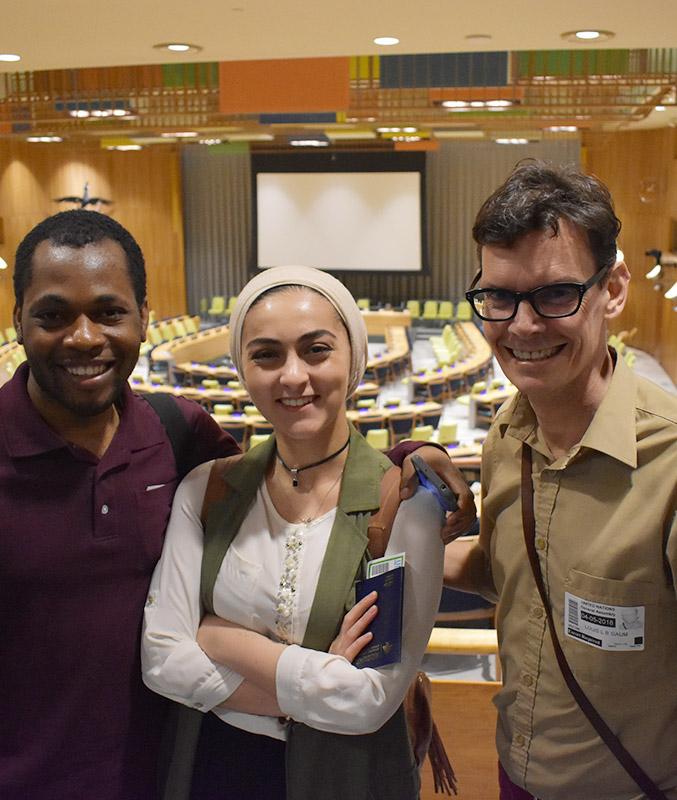
Projects
Our students complete their degree with a capstone project they design around a need or conflict in their community. They will map out their theory of change as a peacebuilder and plan how they will apply what they have learned at Hartford International to address that need or conflict.
Faculty
Our faculty bring years of academic and practical experience teaching and serving communities of different faiths through complex conflicts around the world. They are award-winning authors, scholars of religion, and passionate leaders in conflict transformation, with teaching and research experience that makes them experts in their fields. They have spoken about their research on international stages, emphasizing sociological contexts, religion and recovery from trauma in the modern world.
Learn More »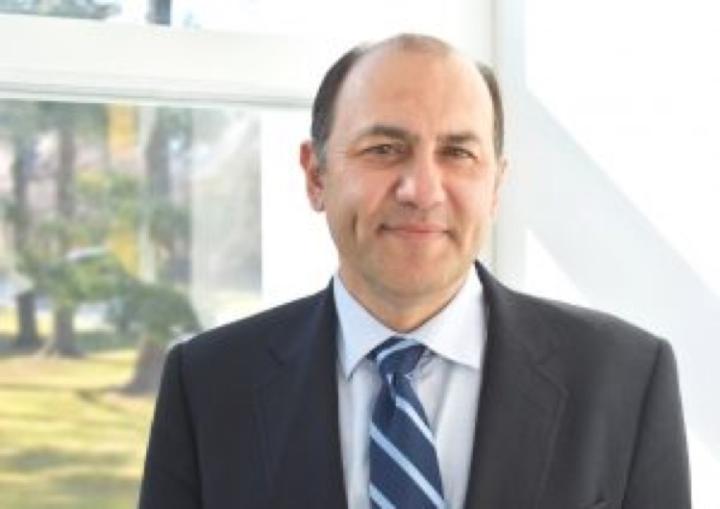
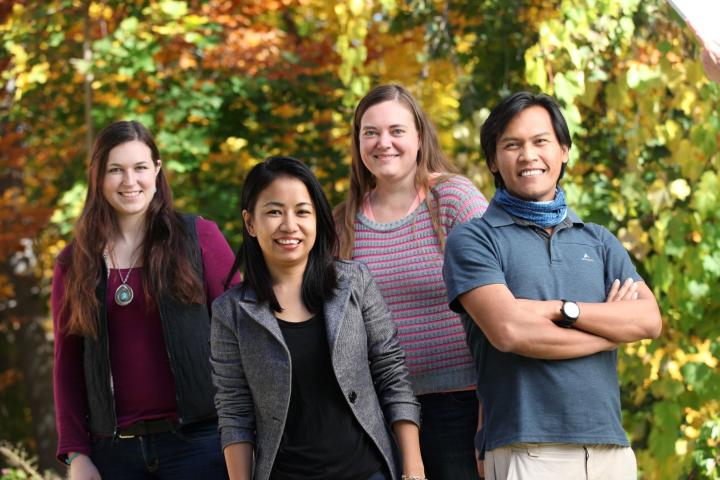
Alumni
With a foundation in interreligious thought, dialogue and critical thinking, our alumni are set on a path to many fields such as social justice, education, international and domestic policy, human rights, community organization, social work, nonprofit leadership and psychology.
Learn More »The People Who Thrive Here
Peacebuilders have a thick skin, a tender heart and a spine like a steel cable; an emotional intelligence, humility and sensitivity to make sense of the ambiguous spaces between us; a collective approach to religious freedom and justice. Our MA in International Peacebuilding is built by faculty and designed for students who come here from all over the world with a calling to transform conflicts and bring peace to communities near and far.
Opportunities & Highlights
Admission Information
APPLICATION DEADLINE
December 15th for non-U.S. citizens
Rolling admissions for U.S. citizens
Related Blog Posts
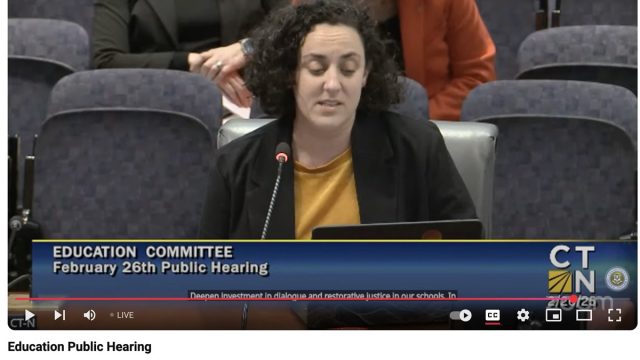
Equitable Justice & International Peacebuilding
Jewish Peacebuilding Student Testifies on Antisemitism Bill
Local resident and HIU student Hannah Belsky recently testified before the CT General Assembly on a bill to form a task force on antisemitism in K-12 education. The post Jewish Peacebuilding Student Testifies on Antisemitism Bill first appeared on Religion & Peace.
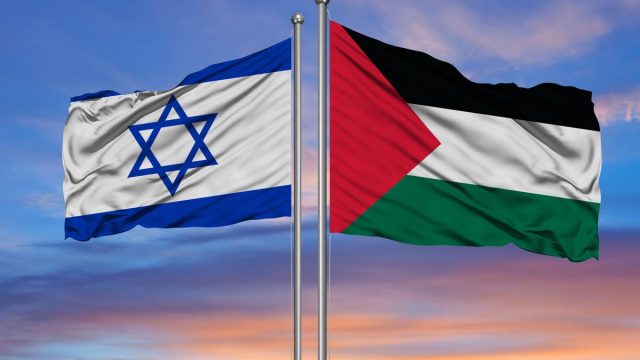
Equitable Justice & International Peacebuilding
Peacebuilding Must Become the Norm
As we approach the anniversary of the Hamas attacks on Israel and mark a year of living with the unimaginable, one thing is clear: The kind of peacebuilding and interreligious dialogue work we do at Hartford International University must become the norm rather than the exception. The post Peacebuilding Must Become the Norm first appeared on Religion & Peace.
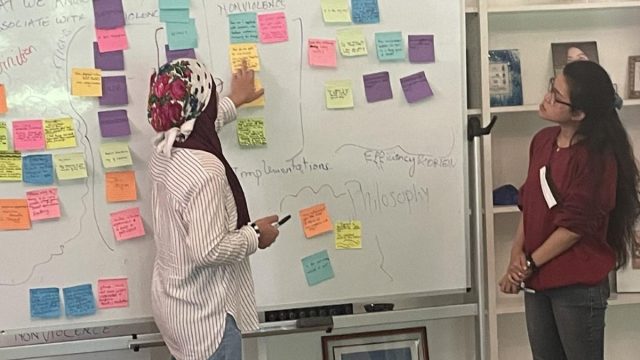
Equitable Justice & International Peacebuilding
Experiential Learning in Peacebuilding: Preparation Is Essential
Phoebe Milliken, Director of HIU’s MA in International Peacebuilding, isn’t a fan of throwing her students into the deep end. Learn more about her preparation-focused experiential learning approach. The post Experiential Learning in Peacebuilding: Preparation Is Essential first appeared on Religion & Peace.
Take the Next Step
Broaden your perspective. Deepen your ability to make a difference. Hartford International University programs prepare religious leaders and peacemakers who go beyond their own beliefs to embrace people of all faiths.
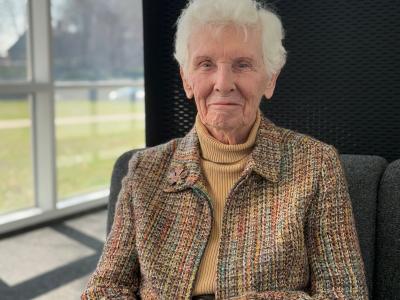
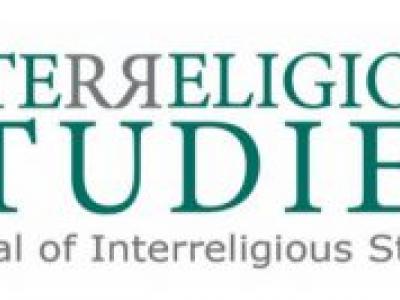
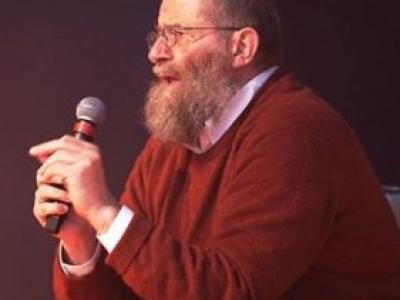
Faculty In The News
HIU Community Mourns Passing of Emeritus Professor Yahya Michot, Highly Regarded ScholarApril 2, 2025
Join our mailing list
Keep up with all the latest happenings at Hartford International.


